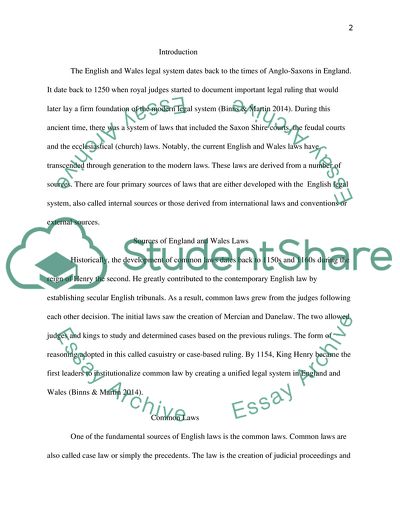Cite this document
(Law in England and Wales Coursework Example | Topics and Well Written Essays - 1500 words - 1, n.d.)
Law in England and Wales Coursework Example | Topics and Well Written Essays - 1500 words - 1. https://studentshare.org/law/1843837-assess-the-different-sources-of-the-law-in-england-and-wales-to-what-extent-have-external-sources-affected-its-development
Law in England and Wales Coursework Example | Topics and Well Written Essays - 1500 words - 1. https://studentshare.org/law/1843837-assess-the-different-sources-of-the-law-in-england-and-wales-to-what-extent-have-external-sources-affected-its-development
(Law in England and Wales Coursework Example | Topics and Well Written Essays - 1500 Words - 1)
Law in England and Wales Coursework Example | Topics and Well Written Essays - 1500 Words - 1. https://studentshare.org/law/1843837-assess-the-different-sources-of-the-law-in-england-and-wales-to-what-extent-have-external-sources-affected-its-development.
Law in England and Wales Coursework Example | Topics and Well Written Essays - 1500 Words - 1. https://studentshare.org/law/1843837-assess-the-different-sources-of-the-law-in-england-and-wales-to-what-extent-have-external-sources-affected-its-development.
“Law in England and Wales Coursework Example | Topics and Well Written Essays - 1500 Words - 1”. https://studentshare.org/law/1843837-assess-the-different-sources-of-the-law-in-england-and-wales-to-what-extent-have-external-sources-affected-its-development.


